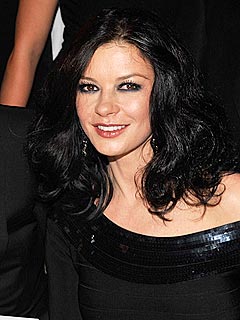
Catherine Zeta-Jones
"I feel great!" the actor, 66, told PEOPLE at Tuesday night's event to celebrate Carnegie Hall’s 120th anniversary. "I feel a tremendous amount of support from so many people."
Absent from the event was his biggest supporter: wife Catherine Zeta-Jones. Hours later, it was revealed that she has quietly sought healing of her own. Her rep says the actress recently checked into a facility for a few days to treat her bipolar II disorder.
The revelation was surpsing to many, not least because the Oscar-winning actress and mom-of-two stayed steadfastly positive in public while sticking by Douglas's side through a grueling six-month battle with cancer.
But behind the scenes, those close to the actress say she felt the strain. Her rep acknowledged the timing of Zeta-Jones, 41, seeking treatment was in part connected to "the stress of the past year."
Adds a friend, "Catherine has had to deal with Michael's illness, and that's been hard."
A Famous Example
In sharing her experience, the actress put a very public face on a mental illness experienced by millions. The key indicator of bipolar II, experts say, is a cycle of high and low moods, often with episodes of depression.Zeta-Jones herself has described her bouts with melancholy, telling The Sunday Times in the U.K. that "I'm lucky. … But that's not to say I don't get down on myself. I try and stay positive, being negative isn't good for my personality. I don't just bring myself down, I bring everyone around me down. It's like a dark cloud, 'Uh oh, here we go', and I have to snap out of it."
Dr. David Miklowitz, professor of psychiatry at UCLA School of Medicine, says stress "definitely can play a role" in triggering depression or what doctors call hypomania, short periods of mild manias.
“Certain life events, changes, particularly those that affect the sleep cycle, can trigger symptoms," says Miklowitz. "An event like a loss experience or family conflict can be a cause or a trigger of bipolar episodes."


No comments:
Post a Comment